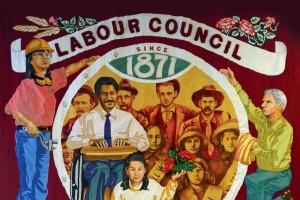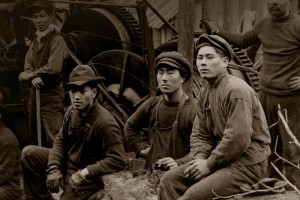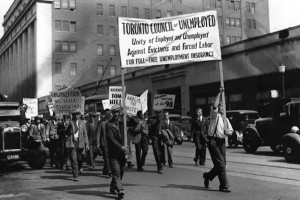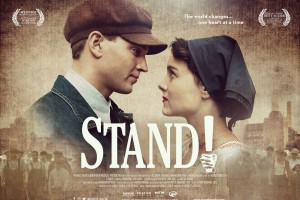A self-proclaimed group of misfits, radicals and rabble-rousers got together recently in Halifax to recount a different sort of history than is usually taught in schools. The conference (October 4-5), called "A People's History of Nova Scotia," was held at the Mi'kmaq Native Friendship Centre in the city's North End, and was akin to a series of fireside chats among veterans of the province's Left. Seasoned activists involved in anti-racist and First Nations groups, the student and labour movements, women's rights campaigns, and queer rights struggles shared war stories with a predominantly youthful audience about key moments in their fights.
On opening night the air was heavy with memories of Rocky Jones.
"Rocky was a heavyweight," El Jones, Halifax's poet laureate, recited in a verse dedicated to her mentor.
Burnley Allan "Rocky" Jones was an African Nova Scotian responsible for bringing the Black Panther Party to Canada. "Black love plus Black Power was Rocky's ingredient," continued El Jones in her spoken word tribute.
Rocky was a renaissance man: he was a student activist, lawyer, university professor, former NDP candidate, and prisoners' rights advocate.
"You couldn't fit into the history books the impact of his greatest hits," fired off El Jones.
His legacy includes the National Black Coalition of Canada and the Dalhousie University Transition Year Program, which has made it possible for many First Nations and Black students to enter university.
"When I tell you he was a giant it was as simple as this: We are stronger together than we are all in bits," said El Jones.
Rocky Jones died of a heart attack on July 29, 2013.
"We all felt like we had all been his kids," recited El Jones.
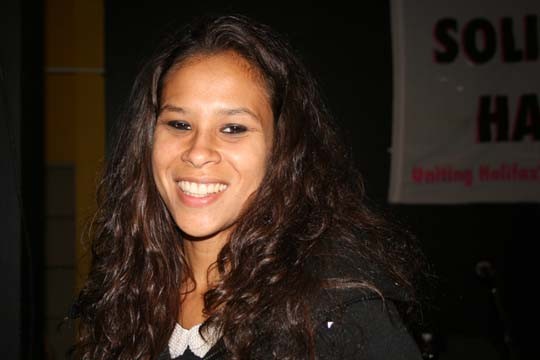
El Jones
Rocky Jones was slated to speak on the opening night of the conference. Instead, the program was reorganized to include a panel of three people who spoke passionately of his legacy and work: Darlene Lawrence, George Elliott Clarke and Carolann Wright-Parks.
PEOPLE AS ARTIFACTS
The conference was a rare opportunity for people new and old to Nova Scotia to be immersed in the province's history of social change.
The space upstairs at the Mi'kmaq Native Friendship Centre was transformed into a People's Museum. Every wall was decorated with historic artifacts, including newspaper clippings, banners, posters, buttons, stickers, political t-shirts, and photographs from various mobilizations.
The panellists, surrounded by these artifacts, seemed like live historical specimens. Their stories were chapters missing from the history books written by the status quo. They talked of creative actions, strikes, occupations, marches and parades that shaped Nova Scotia's politics. These were stories of the fights that were won and the larger-than-life figures that influenced the scenes.
IN THE BROOM CLOSET
The stories were diverse, spanning the province and speaking to students, workers, First Nations fishers, women struggling for gender equity, and people fighting for LGBTQ rights. Chris Frazer, one of the most animated speakers at the conference, is an associate professor in history at St. Francis Xavier University, and a drag queen. She talked about the history of the queer movement in Nova Scotia.
"My first office as an advisor on queer issues was a broom closet," she said, illustrating the marginal nature of queer issues at St. Francis Xavier not so long ago. She said to the administration, "You're putting me in a closet?" Despite the harassment and intimidation, including gay-bashing, faced by the local LGBTQ community, Frazer and others continued to organize.
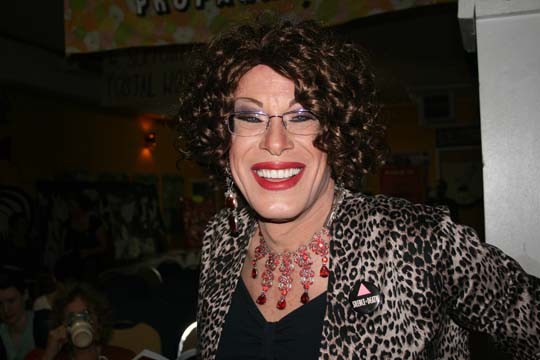
Chris Frazer
"I'm not gonna be quiet, I'm not gonna shut up and I'm not gonna be invisible!" said Frazer about going to bars in Antigonish in drag despite several instances of gay-bashing.
WOMEN OF STEEL
Sherry Pictou, an organizer with the Bear River First Nation and PhD student at Dalhousie University, teared up as she told stories of fighting for the right to fish, and dead-end meetings with the Department of Fisheries and Oceans.
She talked of how she came from a long line of strong women, including her grandmother, who was a chief. She was a woman of steel, according to Pictou, who kept her cool even when she had the barrel of a rifle pointed at her face.
Pat Kipping, a women's, peace and environmental activist and member of Halifax's Ecology Action Centre board talked of the seldom-documented history of women's struggles in Canada. Holding up the day's copy of The Globe and Mail, she pointed to the headline, aghast at how things seem to be going backward: "In 17 minutes another Canadian woman will be forced to have sex against her will."
Kipping stressed the need to document the history of the women's movement in Nova Scotia before the memories of past tactics, actions and wins are lost. "Please don't let history be erased," she said. "We need these stories."
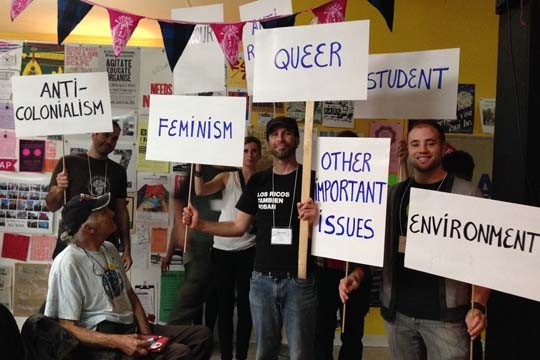
Conference Participants Strategize About Ways To Move Forward
THE STRIKE
Tony Tracy is an Atlantic Region representative with the Canadian Labour Congress. A longtime trade unionist and social justice activist, he told the story of the Canso fishermen's strike of 1970-71, encouraging everyone to read The Education of Everett Richardson: The Nova Scotia Fishermen's Strike, by Silver Donald Cameron. Richardson, one of the leaders of the strike, was sentenced to jail for telling reporters the fishermen would continue to picket until their demands were met, regardless of the court injunction against further picketing.
The next day 7,000 workers, including miners and construction crews in Cape Breton, walked off their jobs. The judge had no choice but to release Richardson. Summarizing the story, Tracy stressed the power of solidarity, saying: "If you go it alone the boss will laugh in your face."
NEVER THINK YOU HAVE WON
George Elliot Clarke, born in Nova Scotia and now Toronto's poet laureate and the E.J. Pratt Professor of Canadian Literature at the University of Toronto, spoke about the dangers of being complacent. "Never think you have won," he said, speaking about the ongoing struggles against racism in Canada.
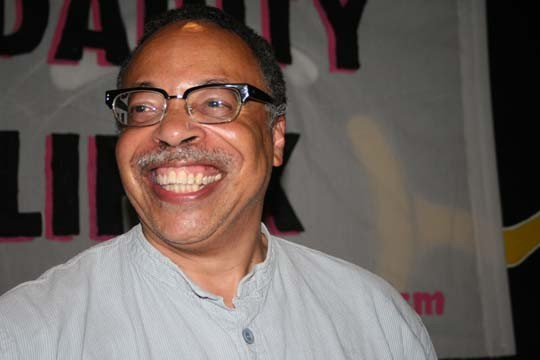
George Elliott Clarke
Clarke coined the term "Africadian" to identify the Black culture of Atlantic Canada. In a talk sprinkled with jokes and tongue-in-cheek remarks, he delivered the sobering message that, while advances have been made by the Black community in Nova Scotia, much more needs to be done to combat institutional and systemic racism.
ALL HISTORY IS A HISTORY OF STRUGGLE
Solidarity Halifax organized the conference. The group has been steadily growing its membership in the city, with popular actions and events that call to attention the interdependence of action and analysis. The People's History conference was organized as an opportunity for the Halifax community to understand the history of Nova Scotia in order to be able to change it.
Panellists talked of the need to collect, share, and preserve stories. "All history is a history of struggle," said Tony Tracy, making the link between the disparate experiences shared at the conference. "You got to recognize all the parts," said Darlene Lawrence, the executive director of the Digby County Family Resource Centre.
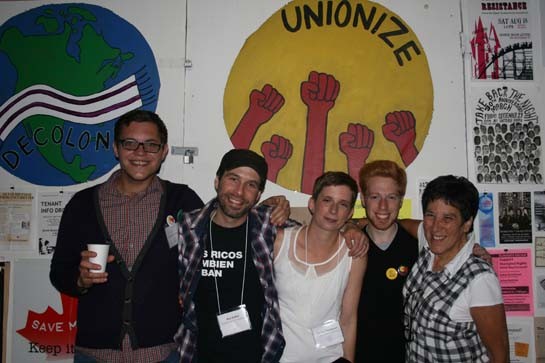
Conference Organizers (left To Right) Evan Coole, Ben Sichel, Lesley Thompson, Omri Haiven And Jackie Barkley
Others offered words of encouragement to a generation of new activists facing obstacles. "You keep pushing and you will make a breakthrough," said Frazer.
Lynn Jones, a longtime activist and Rocky's sister, and the first woman of colour to be a vice-president of the Canadian Labour Congress, talked about the need for activists to acknowledge their humanity and fallibility. She noted that not even Rocky, remembered as an icon in the community, was perfect.
"One thing Rocky taught me," she said, "is you act, even if your voice shakes."
Sima Sahar Zerehi is a journalist, communications strategist, college professor and new media buff. She has done extensive research and advocacy work in the area of immigration, labour, and human rights. In her daydreams she imagines herself as an artist and photographer.


